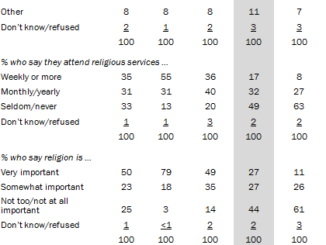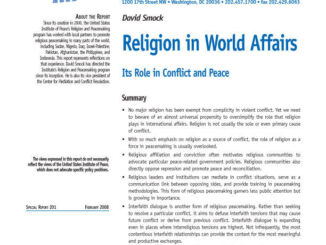
I grew up in a Southern evangelical church where the most important concern was accepting Jesus Christ as your Lord and Savior. After salvation, you lived a righteous and moral life. Today there is growing emphasis among progressives on a different standard: "What would Jesus do?"
WWJD is an imperative question for Christians of all varieties, especially as we face important issues like religious liberty and healthcare in the Trump era.
There is a major caveat to be noted. Basing current political and ethical decisions on what Jesus would do must begin with accurate understanding of him as a Second Temple Jew before Roman destruction. Hand picking scriptural passages is not constructive when historical context is ignored.
What did Jesus do in his own time and why?
He lived and worked in rural villages in Galilee and Judea where people were overwhelmingly poor, hungry, and unhealthy. The only city Jesus visited was Jerusalem for religious festivals. The religious and political elite lived in cities enjoying the bounty of society at the expense of a rural underclass.
Jesus did not preach social revolution or violence. He attracted crowds mainly by exorcising demons and healing the sick. Health issues were important to the rural poor so that power to heal was a demonstration of God's values. Jesus's teaching criticized religious and political leadership because their practices set them apart from common people. For example, the parable of Lazarus and the rich man (Luke 16: 19-31) foretold judgment for a prosperous man who considered another Jew almost subhuman rather than seeing him as needing help. More notable is the emphasis in the parable of goats and sheep (Matthew 25: 31-46) on a divine standard judging Jewish behavior for treating fellow Jews in need ("the least of these members of my family").
Jesus challenged all Jews of his time, not just the rich. The parable of the Samaritan (Luke 10: 25-37) shocked everyone in his audience because the hero who gave medical attention to an injured Jew was a despised heretic, a fellow Israelite who did not accept the dominant role of Jerusalem and its temple. The parable illustrated that despised heretics could obey the command to love God and one's neighbor better than official religious leaders.
These aspects of Jesus's actions and teachings translate remarkably well to our time. Should our priority be effective healthcare for all, especially the poor and those facing catastrophic health conditions, or should we be more concerned about eliminating taxes on the rich that fund healthcare to those in need? Jesus's concern that rich Jews treat all Jews as children of God translates well into considering all human beings as members of our family.
Does Jesus have anything to say about freedom of religion? The Gospels say nothing about LGBT behaviors, contraception, abortion, or the sanctity of private ownership. Yet in situation after situation Jesus criticized the self-interest of the "haves" when they put themselves above the needs of others. The standard in Matthew 25 is a high bar. We face divine judgment when we ignore the needs of our neighbors, however lowly or criminal they may be. Self-centered standards of righteousness can't stand up to such a test.
President Trump issued an executive order protecting religious freedom and combating discrimination against religious liberty. People whose conscience does not allow them to tolerate LGBT persons, or approve of contraception or other health choices by females, or believe in scientific discoveries that disagree with their interpretations of the Bible must be allowed to force their beliefs on others as part of their personal religious freedom. This approach ignores the example of a Jesus who consorted with religious outcasts and consistently punctured the balloons of religious leadership he called hypocritical and self-righteous.
Vice President Pence expressed his version of evangelical neighborly love after passage of the American Health Care Act in the House of Representatives. "What we need is more Jesus care … People who lead godly lives don't need to worry about doctors." If the poor and needy, the LGBT people, and other "ungodly" people went to church, Jesus would take care of their problems.
The horror of this statement is that the standard in the parables of the Samaritan and the sheep and goats has been "repealed and replaced" along with Obamacare.
Christianity that asks "WWJD" is incompatible with trampling on the needy and mistreated, advising them to improve by becoming godlier. Would Jesus have applauded denying healthcare to the poor in order to reduce taxes on the rich? Political and religious leadership in Jesus's time showed their regard for the standard of WWJD outside the gates of Jerusalem on a Friday morning at Passover. They would have fit in with TrumpCare Christianity.
Proudly WWW.PONIREVO.COM



